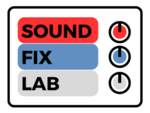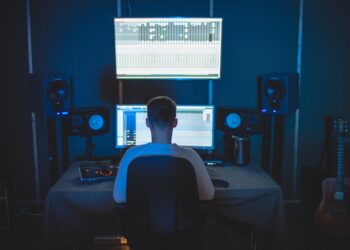Achieving a balanced and professional-sounding mix is a fundamental goal for music producers. One essential aspect of this process is frequency balancing, which involves distributing frequencies evenly across tracks to create a cohesive and pleasing sonic experience. In this article, we will explore the various techniques and creative uses of RMS (Root Mean Square) in music production for effective frequency balancing.
Understanding RMS and its Significance:
RMS is a measurement of the average energy in an audio signal. It provides valuable insights into the overall loudness and dynamic range of a track. By harnessing RMS, producers can make informed decisions regarding gain staging, dynamic control, and frequency balancing.
Using RMS for Gain Staging:
Proper gain staging ensures that each track in a mix is at an appropriate level, preventing distortion and maintaining a balanced mix. By referring to RMS levels, producers can achieve consistent gain staging across all tracks, resulting in a clean and controlled mix.
Balancing Mix Elements with RMS:
Comparing the RMS levels of different tracks or instruments within a mix allows producers to adjust their relative levels effectively. By targeting specific frequency bands and manipulating RMS levels using techniques like EQ and compression, a balanced and cohesive mix can be achieved, preventing certain elements from overpowering others.
Achieving Frequency Balance:
RMS levels serve as an objective guidepost for frequency balancing. By analyzing the RMS levels of different frequency bands, producers can apply techniques such as EQ, multiband compression, and dynamic EQ to shape the tonal balance of a mix. This ensures that no frequency range dominates or gets buried, resulting in a pleasing and even distribution of frequencies.
Mastering with RMS:
During the mastering stage, RMS levels play a crucial role in achieving a consistent and competitive loudness across tracks. Mastering engineers employ RMS meters to measure and control the overall loudness of the final master while maintaining a balanced mix. This ensures that the tracks sound cohesive and are suitable for different listening environments.
Creative Applications of RMS:
Beyond its technical uses, RMS can be a valuable tool for creative sound design. Producers can experiment with dynamic processing techniques based on RMS levels to shape the envelope or texture of sounds, resulting in unique and captivating sonic characteristics.
Frequency balancing is an essential aspect of music production, and RMS provides a valuable objective metric for achieving a balanced mix. By utilizing RMS levels along with techniques such as EQ, compression, and dynamic control, producers can shape the tonal balance, enhance clarity, and create a polished and professional-sounding mix. Whether in the realm of gain staging, frequency balancing, mastering, or creative sound design, harnessing the power of RMS empowers producers to craft exceptional music that captivates listeners.




